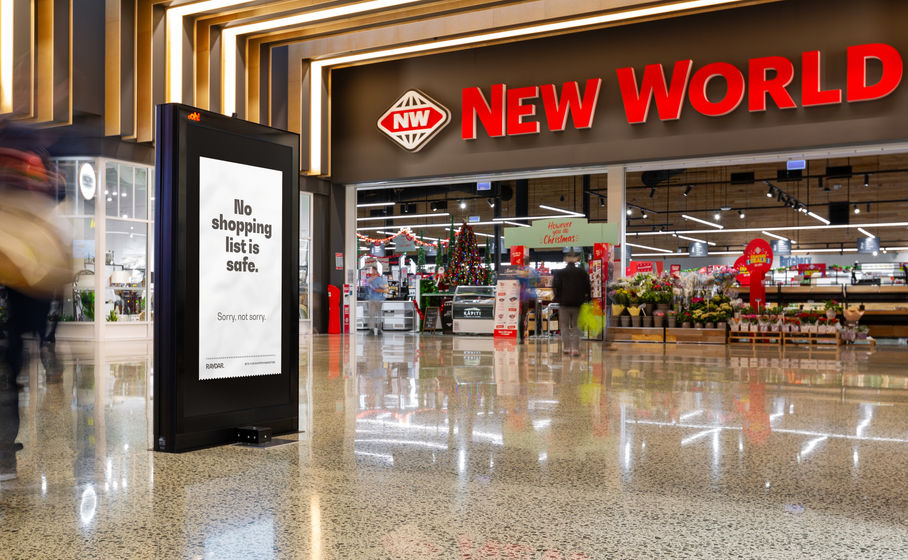RAYDAR SELF PROMO
OOH | PRESS RELEASE
There's an unspoken agency hierarchy in the ad industry.
Usually those with the biggest brands, budgets, and bargaining chips receive the brightest PR spotlight.
Each moment of fame adding a notch to the belt securing their publically-perceived reputation.
Rightfully so. Most have big, impressive pants to uphold.
So, where does that leave those with a more modest sense of fashion?
Outfit metaphor aside – Raydar has held their position as NZ's leading shopper agency for years, yet remain humble; existing in the industry as subliminally as their shopper strategies.
Until now.
Written and placed for the public, the real target audience was our PR-frenzied counterparts.
And thus, with a few cheeky copy lines and shopper-specific placements, we set a scene that boldly introduced Raydar, and claimed our position amongst Kiwi agencies.
“Willpower isn’t your problem – Raydar is.”
NZ's #1 Shopper Agency comes clean in cheeky new campaign.
“No shopping list is safe” says it all.
Walk into any supermarket knowing exactly what to buy, and you’ll probably walk out with a trolley-load of unplanned and totally unexpected additions. With costs on this rise, this baffling phenomenon is more evident than ever – but don’t panic, an explanation has finally emerged. It’s not just a lack of willpower that’s playing tricks on your shopping list, it’s behavioural science; or, as Auckland shopper agency Raydar calls it, their “secret sauce”.
The science in question includes a few fundamental methodologies, often bantered around as buzzwords like “nudging”, “priming”, and “System 1 thinking”. While these may totally breeze over your conscious mind, they certainly settle into the subconscious with ease.
“Creativity and science – two words that aren’t often used together. Bugger that. Behavioural science makes our creative work harder and smarter. So much smarter, you don’t even question it.”
- Tony Clewett, Raydar Creative Director.
Turns out, your subconscious emotions aren’t just targeted by rom-com directors and puppy adoption drives; they, too, are critical when deciding which deodorant or multivitamin brand to buy. Sounds like a far reach – you can almost hear the symphony of “ppffttts” through the screen – but, as Raydar Planning Director Paul Dobbin puts it, “If you didn’t notice our work at work, great – that’s the first step”.
“Mid-cost-of-living crisis, consumers are more willing to flex their brand loyalty and buying behaviours if it means better value for them. That’s how we help. With proven techniques, we can grab attention, reduce friction, and connect with the right people.”
Therein lies the big question: Should Raydar apologise for influencing consumers’ minds towards certain purchases. Or, be applauded for creatively leveraging neural short-cuts that, at the end of the day, help relieve the cognitive load of overstimulating environments.
The answer probably depends on who you ask; when posed the question of whether it’s fair play to use behavioural science as a tool, Managing Director Kristyna Hotchin responded, “Absolutely”.
Followed by, “It’s not about taking away choice, but effectively speaking a subconscious language that genuinely resonates and connects with consumers’ wants and needs. That’s how we give our clients a competitive edge, while adding a little magic to everyday admin.”
Raydar’s Sorry, Not Sorry campaign is live and back-handedly apologising in mall media near you. Perhaps you’ll thank them for the encouragement to shop without auto-pilot. Or, perhaps, the subconscious just isn’t interested in listening to logic – a little like your wallet.





